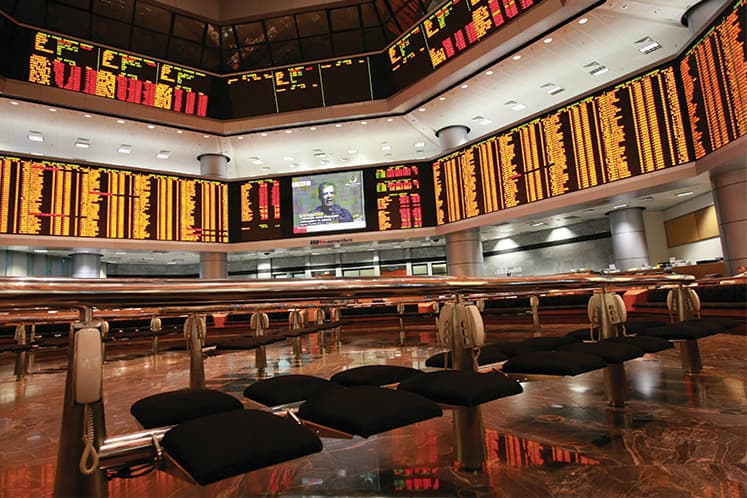
This article first appeared in The Edge Financial Daily on October 10, 2018
Market sentiment was getting bearish after the FBM KLCI failed to climb higher and overcome the resistance. The market is cautious as we move into the last quarter of the year and may be expecting weaker third-quarter corporate earnings results. Furthermore, recent economic data showed Malaysia’s exports contracted 0.3% year-on-year to RM81.81 billion in August.
The KLCI declined 0.9% in a week to close 1,777.15 points last Friday, the lowest in two months. The market continued to decline this week and the index closed at 1,774.15 points yesterday.
Trading volume increased last week but the value fell. This indicates that the focus on trading was on lower-capped stocks which are traded mostly by the retail market. The average daily trading volume increased to 2.4 billion from two billion shares in the previous week and the average daily trading value fell to RM2.1 billion from RM2.5 billion.
Trading among foreign institutions, local institutions and local retailers was mixed. Net selling from foreign institutions was RM69 million, while net buying from local institutions and local retailers were RM16 million and RM53 million respectively.
For the KLCI, decliners beat gainers 23 to seven. The top three gainers were Press Metal Aluminium Holdings Bhd (+4.5% in a week to RM5.08), Sime Darby Bhd (+0.8% to RM2.63) and CIMB Group Holdings Bhd (+0.5% to RM6.04). The top three decliners were Axiata Group Bhd (-5.7% to RM4.30), Telekom Malaysia Bhd (-4.4% to RM3.08) and MISC Bhd (-4.3% to RM5.80).
Global markets were mostly in red. In Asia, Hong Kong’s Hang Seng Index took the lead with a 4.4% weekly decline after a major typhoon hit the island two weeks ago. China’s markets were closed for a week-long holiday. The US market fell on an increase in Treasury bond yield after the US Federal Reserve raised interest rates. European markets followed bearish cues from the US.
The US dollar continued to strengthen against major currencies. The US dollar index (which measures the US dollar against major currencies) increased to 95.6 points last Friday from 95.1 points the week before. The ringgit weakened slightly against the US dollar at RM4.15 to a US dollar compared with RM4.14 in the previous week.
Prices of gold and crude oil closed higher last week. Brent crude continued to climb to a fresh four-year high. Commodity Exchange gold rose 0.8% in a week to US$1,205.60 (RM5,015.30) an ounce last Friday. Brent crude oil increased 1.8% to US$84.16 a barrel. Locally, crude palm oil futures increased 1.4% to RM2,223 per tonne.
The KLCI fell for the second week and has declined below the immediate support level of a sideways trend at 1,780 points. This indicates that market sentiment is getting bearish and the momentum is gaining traction.
Trend-wise, the KLCI trend is bearish below both the short- and long-term 30- and 200-day moving averages. This whipsaw on the move indicates uncertainty. The index is now diving into the Ichimoku Cloud and this indicates uncertainty in the bullish trend.
Momentum indicators are now declining at a stronger pace. Momentum indicators like the Relative Strength Index and oscillator have fallen to a three-month low. The moving average convergence divergence indicator (MACD) continued to fall and the gap between the MACD and its moving average is widening. This indicates that the bearish trend momentum is gaining traction.
The “head and shoulders” chart pattern is becoming more apparent now. With the current momentum, the KLCI may continue to decline and hence confirm the head and shoulders pattern. The target level for this pattern is at 1,725 points.
However, the index may rebound from the current support level but chances are slimmer. Henceforth, expect the market to move further into a downward correction in the short term.
The above commentary is solely used for educational purposes and is the writer’s point of view using technical analysis. The commentary should not be construed as an investment advice or any form of recommendation. Should you need investment advice, please consult a licensed investment adviser.